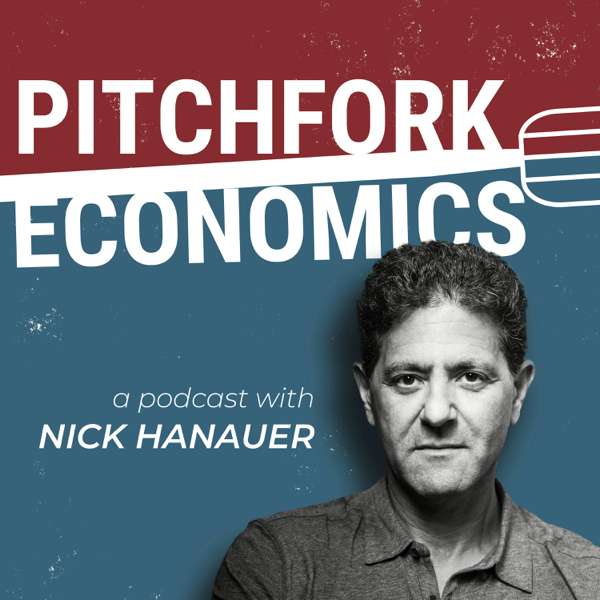Spencer Deng, founder of Shenzhen-based robotics and AI start-up Dorabot Inc., wants to build a Silicon Valley startup with Shenzhen speed to fully automate the whole logistics process. Ever since being put into an internship as a teenage delivery boy at EMS, the 30-year-old entrepreneur has been thinking about how to solve this complicated puzzle making machines do all the boring and repetitive logistics work.
Now, leading a team camped out in a remote warehouse in Shenzhen, Deng works with dozens of robotics geeks from around the world trying to solve specific puzzle pieces. In one corner, a Yaskawa robotic arm is being "trained" to read parcel labels on a conveyor belt, pick up the parcels and drop them into different sorting containers.
With an aim to achieve cost savings and better efficiency in the task of sorting, Dorabot bought the Yaskawa robotic arm. It then placed cameras on the it, added self-made graspers, and built back-end systems to enable the arm to read labels via image recognition, quickly figure out how best to pick up the item based on its shape and material, and put it in the correct containers.
"One of the big reasons why the (robotics/AI) industry is growing so rapidly is that deep learning made huge breakthrough around 2010, leading to significant improvements in computer vision, facial recognition...This suddenly opened up a lot more applications (in other sectors)," Deng told China Money Network in an interview at Dorabot's Shenzhen headquarters. "If we capture enough data from the logistics industry (using image recognition), we might be able to improve optimization significantly."
The optimization part is best explained in an example. Dorabot is helping a global furniture company optimize pellet placement in their containers for shipping. It takes a lot of training for very skilled workers to know how to place the pellets to save space and material. But with cloud-based systems, AI algorithms and deep learning capabilities, the best placement solution takes a second to be generated, and the workers just need to execute it.
For now, most of Dorabot's products are in the research and development stage with a few being implemented in real-world use cases. But Deng's timing to start an AI company in logistics is impeccable.
Chinese e-commerce giants Alibaba and JD.com, as well as major express delivery firms, have all been pushing aggressively in smart logistics. During this year's 11.11 shopping festival, ALOG Technology, a key supplier of warehouse management services for Alibaba's Tmall Supermarket, worked with Chinese AI unicorn Megvii Technology and Ares Robot to help handle the massive 1.35 billion orders placed during a one-day event. A total of 500 fulfillment robots worked for five days non-stop (except for battery recharge) to fulfill 1.5 million goods, says Megvii in a Wechat post. Megvii acquired Ares Robot, a logistics robotics firm, earlier this year for an undisclosed amount.
In Deng's vision, however, making the logistics process partially automated is far from enough. Kiva Systems, now known as Amazon Robotics after it was acquired by the American e-commerce giant in 2012, is a symbolic solution most commonly seen in today's warehouses around the world. Alibaba's Cainiao warehouses use lots of similar fulfillment robots - mostly made by Chinese copycats of Kiva Systems - to move goods around in warehouses, so workers don't have to walk around to pick up or put back certain products.
"The difference between automation and robotics/AI is that there is no "thinking" or "learning" in automation," says Deng in the interview. "Automation is perhaps a lower level system that companies use before moving to more intelligent robotics/AI solutions."
In a way, what Deng envisions is a more "fancy" system that can further squeeze efficiency improvements from existing systems that have already cut significant numbers of human laborers. In ALOG's smart logistics solutions, for example, vast network of conveyor belts, instant scanning of bar codes, product transfer assisted by fulfillment robots have made warehouses and fulfillment centers requiring just small numbers of human workers.
But Deng believes the whole process can be done by machines alone, and at much cheaper costs and higher efficiency. He reckons that if applied, his products can achieve "amazing" cost-savings for Western logistics firms. In China, as labor costs are still low, the benefits are less compelling but still better than humans. That's why Dorabot is targeting international clients at first.
Deng estimates that in the next five to seven years, the ratio of the Chinese logistics sector that is aided by automation or robotics and AI will increase from 4% currently to 70%. The automated logistics equipment market in China has been growing by 26% year-on-year, and is expected to exceed RMB100 billion (US$14.42 billion) in 2018, according to research by ReportLinker.
Because of this huge growth potential, many companies have moved into providing tech solutions for smart logistics. Megvii, the operator behind facial recognition platform Face++, bought Ares Robot just for this purpose. Not to mention Cainiao's own logistics partners, and a number of startups including Geek+ and Quicktron.
Dorabot, backed by Yunfeng Capital, Sinovation Ventures, and GP Capital, will need to make progress at China speed. At the same time, it has to keep true to the Silicon Valley spirit it prides itself in: innovative problem solving.
Read an interview Q&A below. Also subscribe to China Money Podcast for free in the iTunes store, or subscribe to our weekly newsletter.
Below is an edited version of the interview.
Q: Give us a brief introduction of Dorabot?
A: We are focused on AI robotics, applying the technology in the logistics sector first. We then seek to apply the same computer vision and (object) manipulation technology to other sectors such as manufacturing and retail.
Q: What’s your observation and assessment of how the industrial robotic sector has grown in China during the past couple years?
A: The robotic industry or the whole automation industry in China has actually grown very fast during the past three years. If you look at the sales of robotic arms by foreign brands including Yaskawa, Fanuc, ABB and KUKA, they are basically doubling every year. But these are mostly hardware companies, instead of software, which is the focus of many American start-ups.
For what we call "brain of robotics", it is still the beginning of a new era. People are trying to build up robotic systems and AI technology, and apply them to the hardware platform based on robotic arms and sensors. This is our focus as well.
Q: What are the dynamics like between local new start-ups and big foreign brands?
A: If you are talking about the robotics arms industry, it's still dominated by the Big Four (Yaskawa, Fanuc, ABB and KUKA). Not just in China, but also globally. There are lots of Chinese companies trying to catch up by importing key components and make locally-produced robotic arms at a cheaper price. These arms are used in places requiring less accuracy than those produced by Germany and Japan. The whole robotics arms sector in China is growing up, there is still a big gap for Chinese companies to catch up.
In terms of robotics software, however, it is different. Some people say "if China can't produce (great) hardware, we can make it up by making (great) software." For example, our human hands do not have high degree of accuracy but can grasp things much better than robotics arms. Robotic arms, on the other hand, have high levels of precision but can't perform many functions that our hands can do. So, there may be a way to have great software and utilize AI technology to improve the dexterity of the hardware.
Q: Is the software something that Dorabot focuses on?
A: Yes, Our main focus is to build the system beyond the hardware that we can purchase off the shelf. We had to build some of the graspers ourselves. But our focus is to build up a linear system with an API to all these hardware to make sure we can perform certain functions.
If comparing to the computer sector, Lenovo are like the hardware provider such as the Big Four. Microsoft is the software provider, and many software developers develop different applications in the Windows system. We are like Microsoft and the application developer, building the Windows systems for robotics sector and also developing applications, starting in the logistics industry.
One of the big reasons why this industry is growing so rapidly is that deep learning made huge breakthrough around 2010, leading to significant improvements in computer vision, facial recognition, and more. For robotics, this suddenly opened up a lot more applications. If we capture enough data from the logistics industry (using image recognition), for example, we might be able to improve optimization significantly.
Another big driver is of course the shortage of labor and rising demand for automation. Today's young people do not want to do the repetitive work of sorting and moving of packages. The demand for automation solutions is the strongest.
Q: Picking the logistics sectors is smart, as the prevalence of e-commerce in China has stimulated annual express delivery parcels to over 40 billion last year. What is your vision for Dorabot in this space?
A: The reason why I chose the logistics sector is when I was young, my father let me intern at EMS. While there, I felt a lot of what I did could be easily automated. Ever since then, I have always thought about ways to fully automate the whole logistics process from the first mile, the warehouse to the last mile.
This year, Alibaba's 11.11 shopping festival hit one-day volume of 1.35 billion packages. It’s simply too much for human labor to process. For us,

 Our TOPPODCAST Picks
Our TOPPODCAST Picks  Stay Connected
Stay Connected







